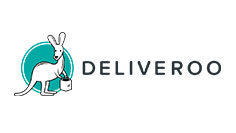DoorDash's Bold Move: A $3.9 Billion Bet on Deliveroo
May 7, 2025, 4:27 am

Location: United States, California, San Francisco
Employees: 5001-10000
Founded date: 2013
Total raised: $2.57B
In a strategic maneuver that echoes the relentless tide of consolidation in the food delivery sector, DoorDash has announced its acquisition of UK-based Deliveroo for approximately $3.9 billion. This deal marks a significant shift in the competitive landscape of meal delivery services, as the two companies aim to harness their combined strengths to navigate a challenging market.
DoorDash, a titan in the U.S. meal delivery scene, is set to acquire Deliveroo, a prominent player in the UK and Europe. The deal, valued at around £2.4 billion, is a testament to the ongoing evolution of the food delivery industry. As inflation bites and consumer spending tightens, companies are racing to scale up and secure their foothold in a crowded marketplace.
The acquisition comes at a time when both companies are grappling with the realities of a post-pandemic world. The initial excitement surrounding food delivery services during the COVID-19 pandemic has waned, leaving many firms struggling to maintain profitability. Analysts have pointed out that the food delivery sector is ripe for consolidation, with too many players chasing a shrinking pool of consumer dollars.
DoorDash's offer of 180 pence per share for Deliveroo was met with a positive response, pushing Deliveroo's stock up by about 2%. However, even with this uptick, the shares remain below their initial public offering price of 390 pence in 2021. This decline reflects the broader challenges faced by the industry, as companies like Deliveroo have struggled to find their footing amid fierce competition and rising operational costs.
Deliveroo's founder, who once delivered meals on a scooter, acknowledged the difficulties of comparing the current valuation to the IPO price. The market has shifted, and so have the dynamics of consumer demand. With larger global competitors looming, Deliveroo's board recognized the need for a strategic partnership to enhance its chances of survival.
The acquisition will bolster DoorDash's presence in Europe, allowing it to compete more effectively against rivals like Just Eat and Uber Eats. The combined entity will serve approximately 50 million active users across over 40 countries, creating a formidable force in the food delivery landscape. In 2024, the two companies reported a staggering gross order value of around $90 billion, highlighting the scale of their operations.
However, the road ahead is fraught with challenges. The European market has proven to be a tough nut to crack, with several companies, including Delivery Hero and Just Eat Takeaway, facing significant operating losses. The intense competition and high operational expenses have driven some firms to exit the market entirely. For instance, Getir, a Turkish rapid grocery delivery company, recently withdrew from Europe and the U.S. to focus on its home market, citing unsustainable international operations.
Despite these challenges, DoorDash remains optimistic about the future. The company has a strong operating playbook and plans to leverage Deliveroo's local expertise to drive innovation and enhance execution. The goal is to provide local businesses with the tools they need to thrive in an increasingly competitive environment.
The deal is not without its risks. For it to proceed, Deliveroo must secure the approval of at least 75% of its shareholders. While the company has garnered support from investors holding 15.4% of shares, including its founder, the absence of Amazon—Deliveroo's largest shareholder—raises questions about potential counteroffers. Amazon's stake in Deliveroo could complicate matters, as it may seek to leverage its position to influence the outcome of the acquisition.
Moreover, DoorDash's recent performance has been mixed. Following the announcement of the acquisition, DoorDash's shares fell by about 7%, reflecting investor concerns about the company's future profitability. The firm has acknowledged the potential for changes in consumer demand, indicating that it remains vigilant in navigating the evolving landscape.
In summary, DoorDash's acquisition of Deliveroo is a bold move in a rapidly changing industry. It represents a strategic effort to consolidate resources and enhance market share in a competitive environment. As the food delivery sector continues to grapple with challenges, this merger could pave the way for a new era of growth and innovation. The combined strengths of DoorDash and Deliveroo may well be the key to unlocking new opportunities in a landscape that demands agility and resilience. The journey ahead will be closely watched, as both companies strive to redefine the future of food delivery.
DoorDash, a titan in the U.S. meal delivery scene, is set to acquire Deliveroo, a prominent player in the UK and Europe. The deal, valued at around £2.4 billion, is a testament to the ongoing evolution of the food delivery industry. As inflation bites and consumer spending tightens, companies are racing to scale up and secure their foothold in a crowded marketplace.
The acquisition comes at a time when both companies are grappling with the realities of a post-pandemic world. The initial excitement surrounding food delivery services during the COVID-19 pandemic has waned, leaving many firms struggling to maintain profitability. Analysts have pointed out that the food delivery sector is ripe for consolidation, with too many players chasing a shrinking pool of consumer dollars.
DoorDash's offer of 180 pence per share for Deliveroo was met with a positive response, pushing Deliveroo's stock up by about 2%. However, even with this uptick, the shares remain below their initial public offering price of 390 pence in 2021. This decline reflects the broader challenges faced by the industry, as companies like Deliveroo have struggled to find their footing amid fierce competition and rising operational costs.
Deliveroo's founder, who once delivered meals on a scooter, acknowledged the difficulties of comparing the current valuation to the IPO price. The market has shifted, and so have the dynamics of consumer demand. With larger global competitors looming, Deliveroo's board recognized the need for a strategic partnership to enhance its chances of survival.
The acquisition will bolster DoorDash's presence in Europe, allowing it to compete more effectively against rivals like Just Eat and Uber Eats. The combined entity will serve approximately 50 million active users across over 40 countries, creating a formidable force in the food delivery landscape. In 2024, the two companies reported a staggering gross order value of around $90 billion, highlighting the scale of their operations.
However, the road ahead is fraught with challenges. The European market has proven to be a tough nut to crack, with several companies, including Delivery Hero and Just Eat Takeaway, facing significant operating losses. The intense competition and high operational expenses have driven some firms to exit the market entirely. For instance, Getir, a Turkish rapid grocery delivery company, recently withdrew from Europe and the U.S. to focus on its home market, citing unsustainable international operations.
Despite these challenges, DoorDash remains optimistic about the future. The company has a strong operating playbook and plans to leverage Deliveroo's local expertise to drive innovation and enhance execution. The goal is to provide local businesses with the tools they need to thrive in an increasingly competitive environment.
The deal is not without its risks. For it to proceed, Deliveroo must secure the approval of at least 75% of its shareholders. While the company has garnered support from investors holding 15.4% of shares, including its founder, the absence of Amazon—Deliveroo's largest shareholder—raises questions about potential counteroffers. Amazon's stake in Deliveroo could complicate matters, as it may seek to leverage its position to influence the outcome of the acquisition.
Moreover, DoorDash's recent performance has been mixed. Following the announcement of the acquisition, DoorDash's shares fell by about 7%, reflecting investor concerns about the company's future profitability. The firm has acknowledged the potential for changes in consumer demand, indicating that it remains vigilant in navigating the evolving landscape.
In summary, DoorDash's acquisition of Deliveroo is a bold move in a rapidly changing industry. It represents a strategic effort to consolidate resources and enhance market share in a competitive environment. As the food delivery sector continues to grapple with challenges, this merger could pave the way for a new era of growth and innovation. The combined strengths of DoorDash and Deliveroo may well be the key to unlocking new opportunities in a landscape that demands agility and resilience. The journey ahead will be closely watched, as both companies strive to redefine the future of food delivery.
